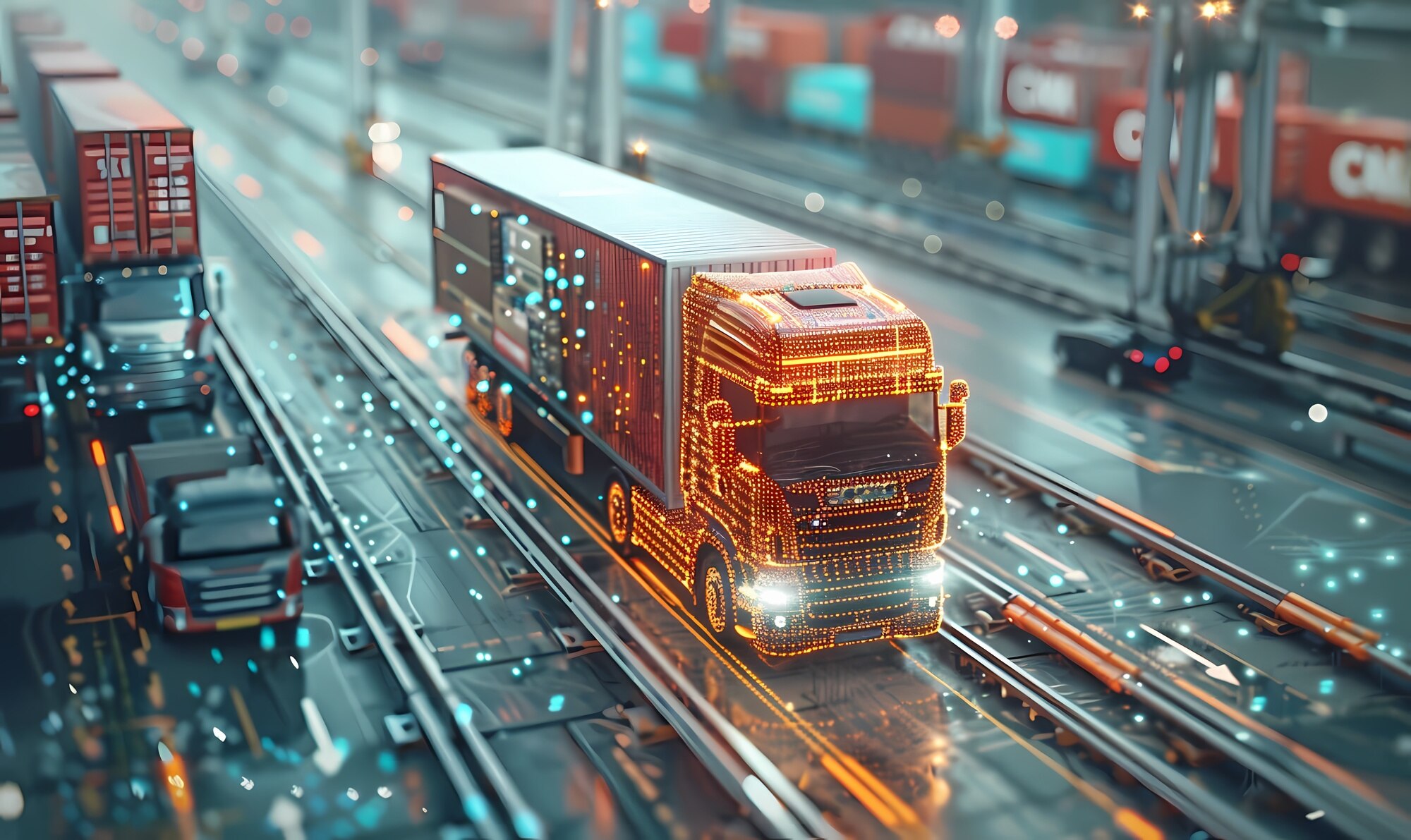AI transforms logistics with smarter routes, safer fleets, and efficiency
In the rapidly changing world of logistics and road transport, artificial intelligence (AI) is emerging as a driving force behind innovation and efficiency. AI in transport logistics is now helping companies optimize operations, reduce costs, and stay competitive in a dynamic global market.In the rapidly changing world of logistics and road transport, artificial intelligence (AI) is emerging as a driving force behind innovation and efficiency. AI in transport logistics is now helping companies optimize operations, reduce costs, and stay competitive in a dynamic global market.

Logistics has always been about precision and timing. But with growing customer expectations, frequent supply chain disruptions, and tighter environmental regulations, traditional methods are no longer enough. AI brings a new level of adaptability to the mix, helping companies react faster, plan smarter, and do more with less.
One of the most powerful applications of AI in our field is route optimization AI. Instead of relying on fixed schedules or basic GPS, AI can analyze real-time traffic, weather, fuel usage, and delivery windows to find the most efficient route for every journey. That means fewer delays, less fuel burned, and happier customers.
At Egala by Boekestijn, where our international fleet is constantly on the move, we’ve seen how AI-powered tools lead to real-world savings and improved delivery performance.
Another area where AI proves its worth is fleet maintenance. With predictive maintenance for fleets, we can now anticipate issues before they become problems. Traditionally, vehicles were serviced at regular intervals or when something went wrong. But with AI, we can now predict issues before they become problems.
By analyzing vehicle data in real time, AI systems can flag when a part is likely to fail, allowing for proactive repairs. This helps reduce costly breakdowns, limits downtime, and extends the lifespan of each truck. For a large-scale fleet like ours, that translates into significant savings and a smoother operation overall.
Safety on the road is always a top priority. AI is beginning to play a bigger role in driver assistance, using sensors and cameras to monitor for risky behaviors like harsh braking, distraction, or even signs of drowsiness.
These tools can prompt real-time alerts to drivers or inform training programs to help improve habits behind the wheel. AI is also simplifying regulatory compliance by automating logs, monitoring rest times, and generating accurate reports, removing a lot of the paperwork from drivers' shoulders.
For our teams at Egala, this not only supports a safer work environment, but also frees up time to focus on what matters most: delivering reliably and professionally.

Customers now expect full visibility into their orders from warehouse to doorstep. AI helps logistics providers meet those expectations by enabling real-time tracking, faster updates, and more personalized service.
Tools like chatbots and virtual assistants can handle everyday questions 24/7, while AI also helps forecast demand more accurately. That means fewer stockouts, leaner inventory, and smoother supply chains benefiting both businesses and the customers they serve.
Real-time visibility is one of the most valuable outcomes of AI in logistics. Learn more about how Egala by Boekestijn enhances transparency through real-time cargo tracking.
While fully autonomous trucks aren’t quite ready to take over the roads, AI is already paving the way. Many trucks on European highways are now equipped with semi-autonomous features like lane assist, adaptive cruise control, and emergency braking – all designed to improve safety and efficiency.
Meanwhile, in warehouses, AI is leading a quiet revolution. Robotic systems, automated vehicles, and intelligent inventory tracking are reshaping how goods are stored, picked, and shipped. Egala is actively exploring these technologies, knowing that automation will play a central role in the future of logistics.
At Egala (formerly known as Boekestijn Transport) we see AI not as a threat, but as a partner. We’ve been investing in AI-powered logistics systems, training our teams to work with digital tools, and forming partnerships with tech providers to stay ahead of the curve.
For us, digital transformation in transport isn’t just a buzzword. It’s a long-term strategy to improve efficiency, empower our people, and deliver sustainable value.
We believe that technology works best when it supports human decision-making, not replaces it. That’s why we’re focused on using AI to enhance how we work, not take away from what makes our company strong: the expertise and dedication of our people.
AI is already changing logistics and road transport, and it’s only just getting started. From route planning and predictive maintenance to warehouse automation and customer communication, artificial intelligence is unlocking new levels of performance, safety, and sustainability.
At Egala, we’re proud to be part of that evolution. We’ll continue to explore, adapt, and implement smart solutions, not just because they’re efficient, but because they help us deliver better for our clients, our drivers, and the world around us.
Because in the end, smart logistics isn’t just about data – it’s about people, performance, and the planet.